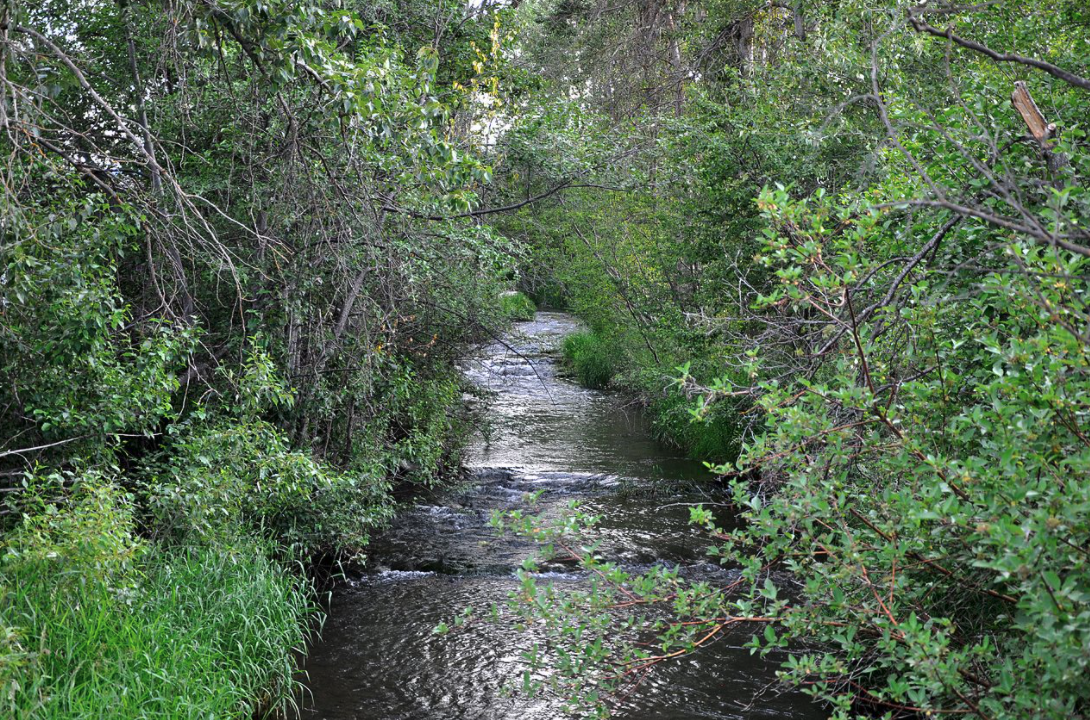Google gives $100,000 for increasing water levels in 15 Mile Creek
Fifteen Mile Creek
The small-scale pilot project and testing site will be built approximately six miles upstream from Dufur.
From Chris Wilson with cplusc.com, a public relations firm in Portland with edits and additions by Tom Peterson:
Today, March 11, Google.org, Google’s philanthropy, announced a $100,000 grant to the Wy’East Resource Conservation and Development Area Council to support Wasco County farmers and wildlife in the Fifteenmile Creek basin.
The grant will go toward the council’s work with the Wasco County Soil and Water Conservation District to increase water levels of Fifteenmile Creek which intends to better regulate the stream’s temperatures, protect aquatic species and ensure consistent water flow for area farmers.
“This work will make our community stronger, and more resilient in the face of climate change,” said Shilah Olson, District Manager of Water Conservation District. “We’re grateful to a number of funders including Google, for helping us take these needed steps to protect Fifteenmile Creek and everything it supports.”
The Conservation District, Wy’East Resource Conservation and Development Area Council, and the Fifteenmile Watershed Council, along with many agency partners and stakeholders, have developed a solution to address the creek’s low water levels in the summer months which raises the water’s temperature, harming and killing aquatic species and limiting water for agriculture. This includes protected species such as the Mid-Columbia River Steelhead, which is listed as part of the federal Endangered Species Act (ESA).
Additional funding from Google.org will allow the organizations to build a small diversion and testing site which will divert and store water from Fifteenmile Creek in the winter to be treated underground and then returned to the creek in the summer to increase water flow.
Lower water temperatures will improve conditions for fish, while also becoming a steady water source for farmers to irrigate their land. The Fifteenmile Watershed Council and the Wasco County SWCD confirmed the feasibility of the diversion in 2021. The small-scale pilot project and testing site will be built approximately six miles upstream from Dufur.
“We understand how important it is to protect the region’s natural resources and the impact that has on wildlife and agriculture,” said Ian Goodhew, Google’s Regional Head of Government and External Relations. “We’re proud that our contributions can help support the growth and sustainability of Wasco County.”
—-
Google has called Wasco County home since 2006 when it opened its very first U.S. data center in The Dalles after negotiating deals for property tax abatements lasting 15-years. Many of its 200 or so employees live throughout the gorge.
In November, Google announced plans for future growth in the region. Under new agreements with The City of the Dalles and Wasco County, Google will have the option to build up to two additional data centers. The company also plans to utilize water resources from the local groundwater aquifer after acquiring water rights for 3.88 million gallons per day attached to the former aluminum plant site in The Port of The Dalles. It has also agreed to pay for $28.5 million of City water upgrades. The amount of water the company currently utilizes at its first three data plants and is still currently held as a trade secret. City Officials will not release the information either.
The latest data center project will include the cleanup of a former Superfund site, a land donation to the county, and will help protect the region’s natural resources, all while making progress toward the company’s ambitious global water stewardship and carbon-free energy goals.
Since 2006, Google has contributed more than $2 million to organizations in Wasco County supporting education, reducing carbon impacts, expanding access to the internet and regional economic growth.

